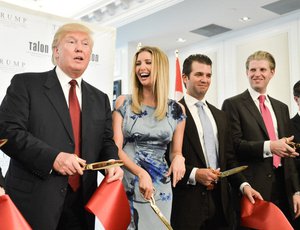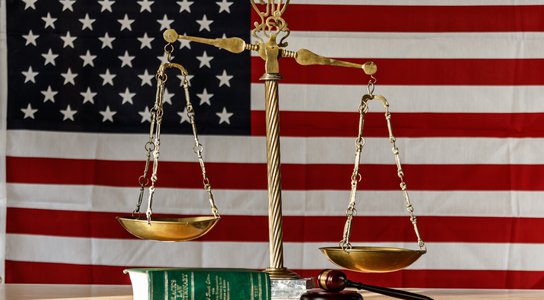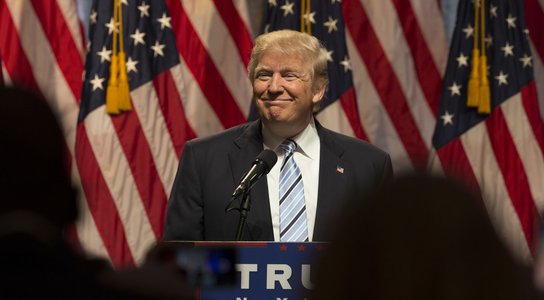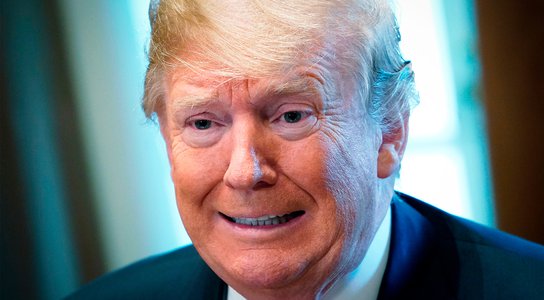The problem:
As US President and businessman, Donald Trump is benefiting in a way unlike any other president before him. But this isn’t just a financial matter. It has major implications for US foreign policy. There’s a risk of Trump letting his business interests guide his policy-making – no longer working on behalf of the American people, but in the interest of his sprawling business empire.
It’s become more and more clear that President Trump has a major conflict of interest. And it’s undermining democracy and security in the US and abroad.
Opening of Trump International Hotel and Tower in Toronto. Photo: George Pimentel
The context:
On Jan. 20, 2017, at a press conference ahead of his inauguration,
Trump promised to separate himself from his businesses and claimed that he
would pursue no
new foreign deals during the duration of his presidency.
At the same briefing, his lawyer Sheri Dillon even stated that “any new deal
could — and I emphasize could — be perceived as causing a conflict or as
exploiting the office of the presidency.”
Nearly two years in, Trump still has not fully divested from his sprawling business empire and continues to have ongoing business deals at home and abroad.
So why is this a big deal? For the answer, one does not have
to look further than his praise for and problematic policies towards autocratic
regimes – take, for example, Russia and Saudi Arabia.
Trump has consistently turned a blind eye to Russian President Putin’s policies and actions that clearly contradict American democracy and interests – including contradicting US intelligence officials’ assessment that Russia interfered in the US 2016 election.
Many speculate that he does this because Putin has compromising
information on him. Others suspect that Trump is hoping for post-presidency business
deals in Russia. Recent revelations show Trump pursued the Trump Tower Moscow deal during his
presidential campaign – much later than he admitted to. He also may have
considered offering Putin a $50
million penthouse, underscoring the potential role of
business interests in the Trump-Putin connection.
Similarly, in Saudi Arabia, Trump continues to deny
the involvement of crown prince Mohammed bin Salman in the murder of Washington
Post journalist Jamal Khashoggi – going, yet again, against US intelligence
reports. At the same time, it’s been reported that he has numerous business
deals with the country and has made tens
of millions not only from Saudi investors, but from the government
as well.
For instance, last August, Crown Prince Mohammed bin Salman stayed
at the Trump International Hotel in New York, which helped boost
the hotel’s quarterly revenue by 13 percent, a significant increase after
revenue had slumped. Between October 2016 and March 2017, Saudi
lobbyists also spent $270,000 at the Washington location of Trump
International Hotel.
Refusing to condemn Saudi Arabia – despite uproar from across America – Republicans and Democrats alike – further casts doubt on whose interest Trump is prioritizing.
The way forward:
Most U.S. government officials are subject to conflicts of interest rules to ensure they do not have financial ties to any businesses or industries they are overseeing. This includes senior executive branch officials – except the President and Vice President.
It’s time that Congress reforms conflicts of interest laws in the US and ensures that the President and Vice President are bound to such rules.
In August 2018, Senator Elizabeth Warren introduced a sprawling corruption bill, which among many other reforms, would require the President and the Vice President to place any assets that could present a conflict of interest into a blind trust to be sold off (neither of which President Trump has done). Now, the incoming House of Representatives is putting democracy reforms front and center.
The new Congress has a lot of work ahead of it to rebuild faith and trust in American democracy. 2019 is the time to start.


